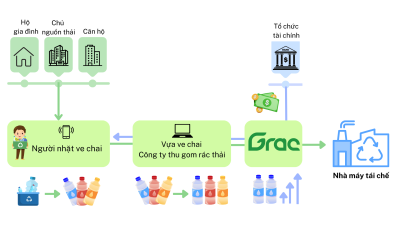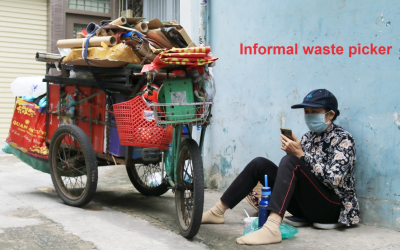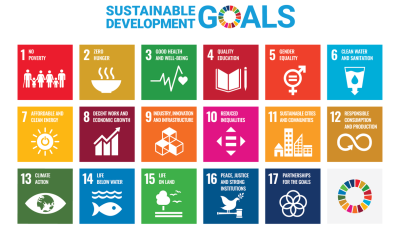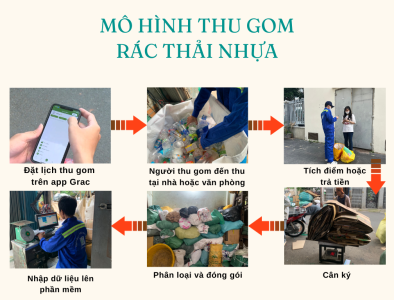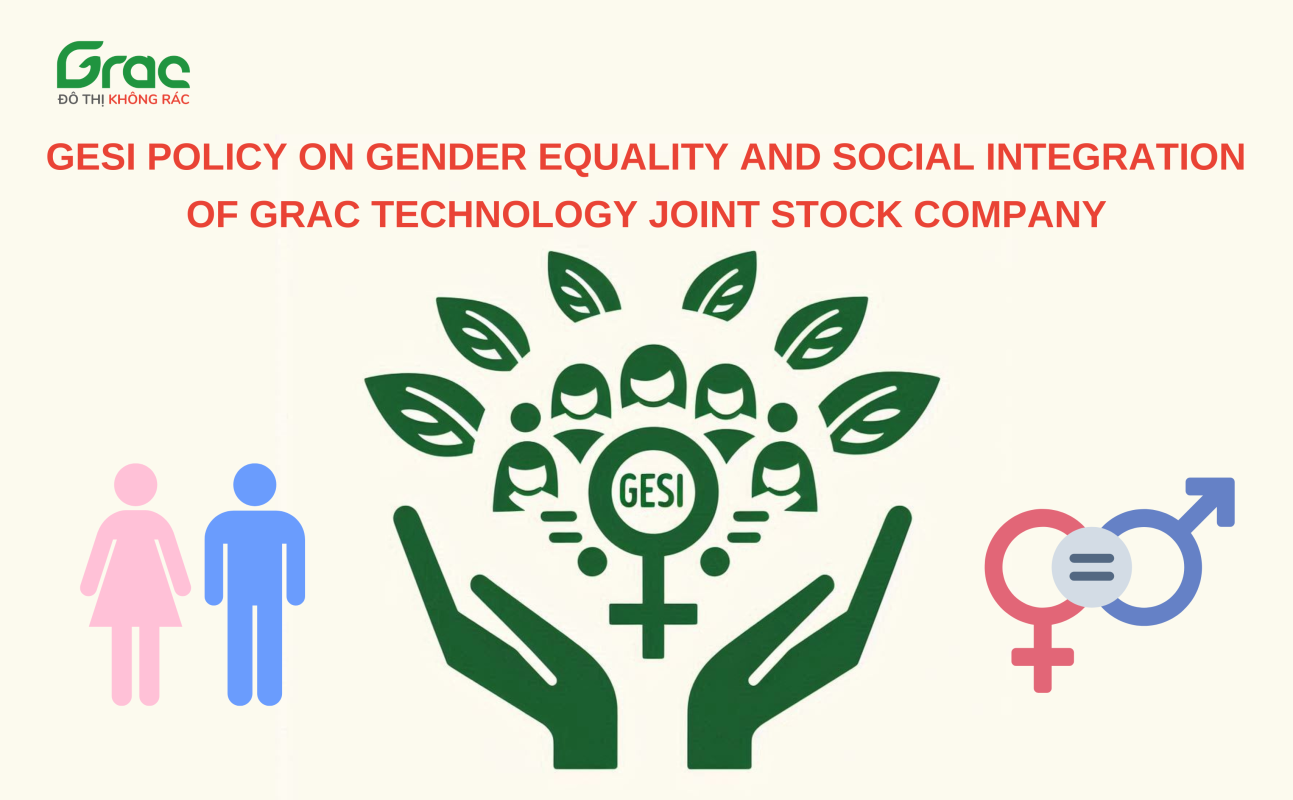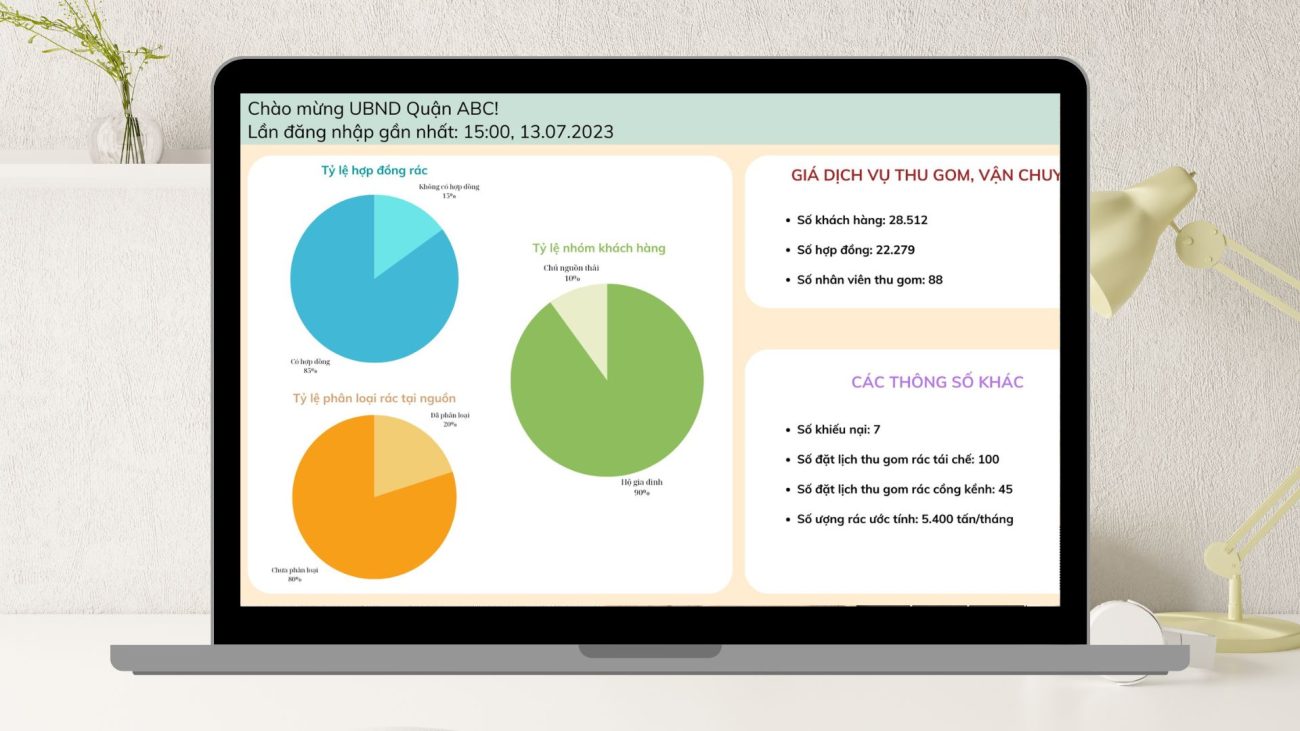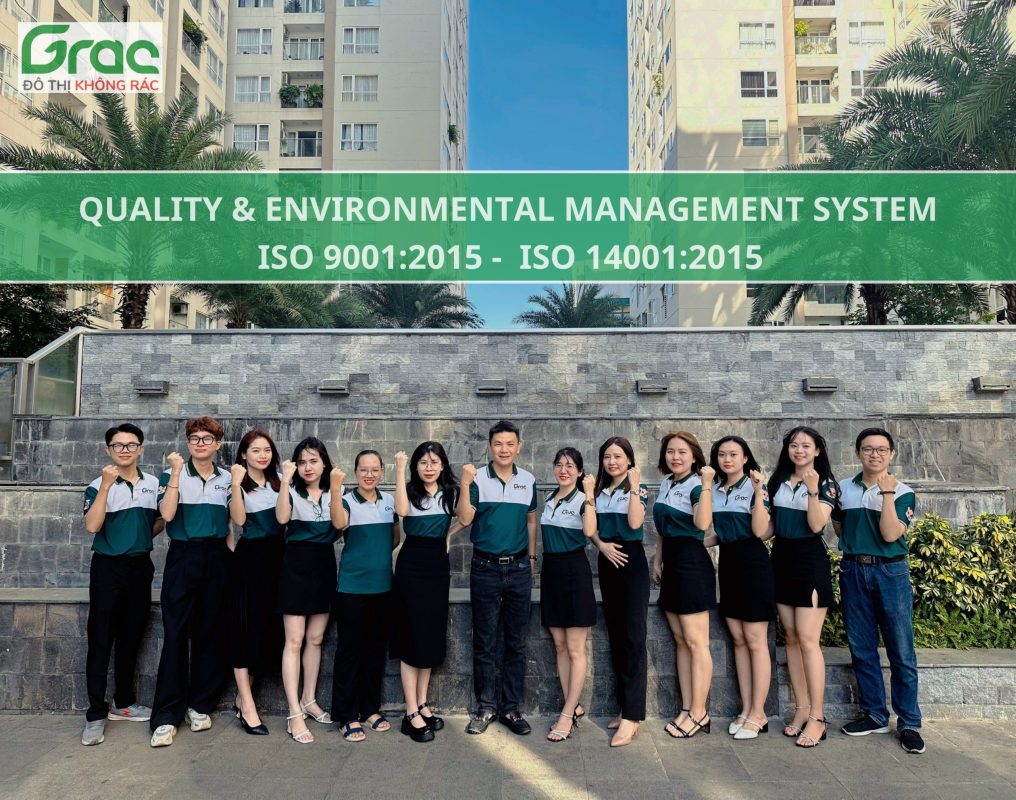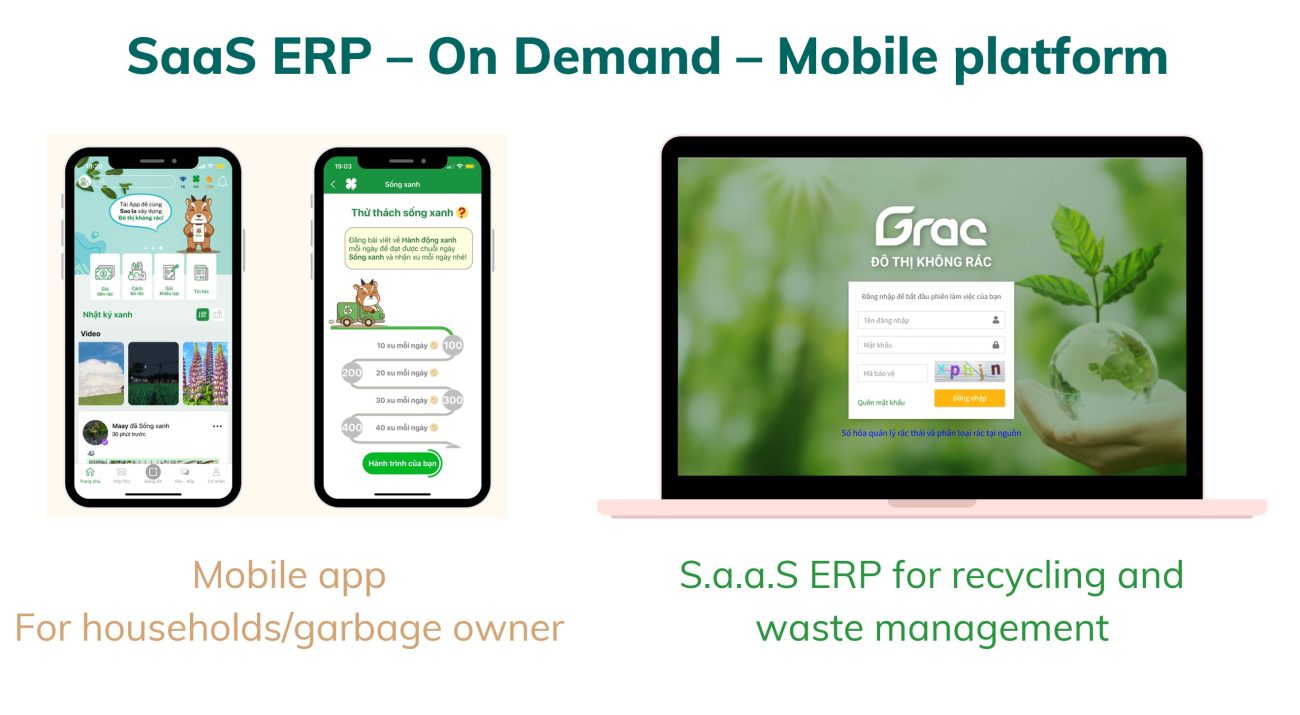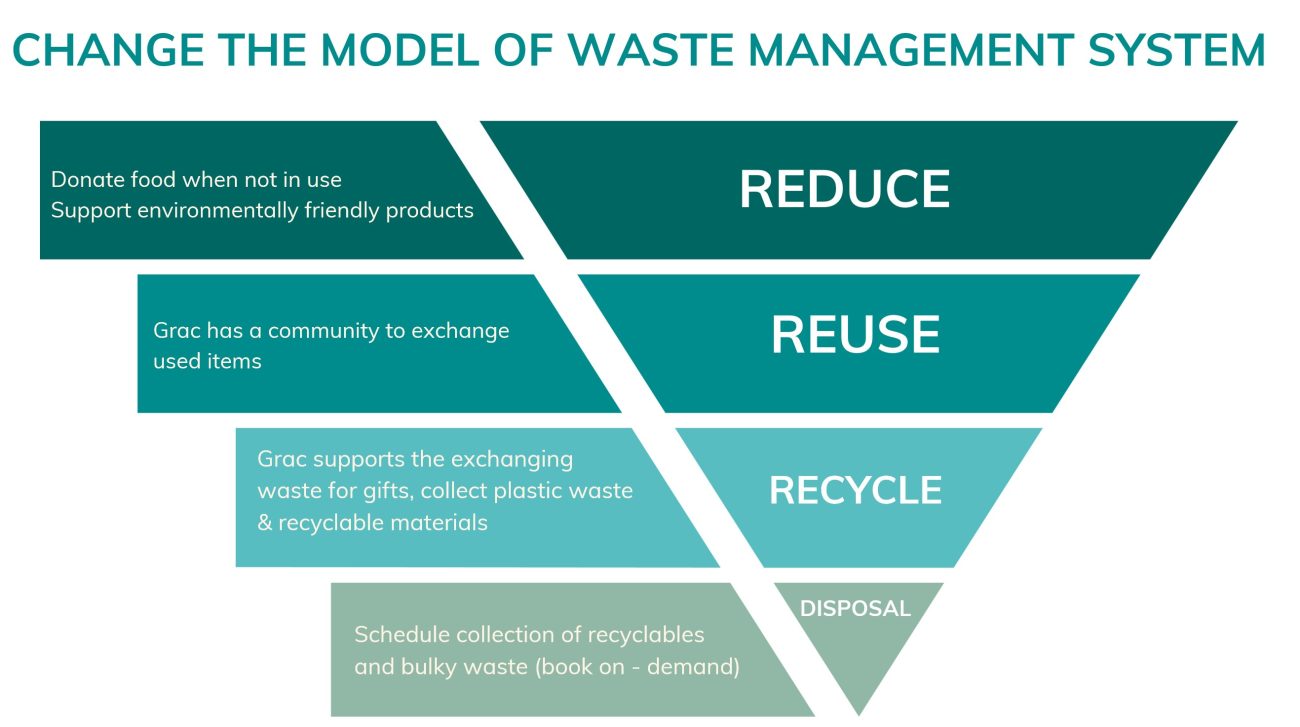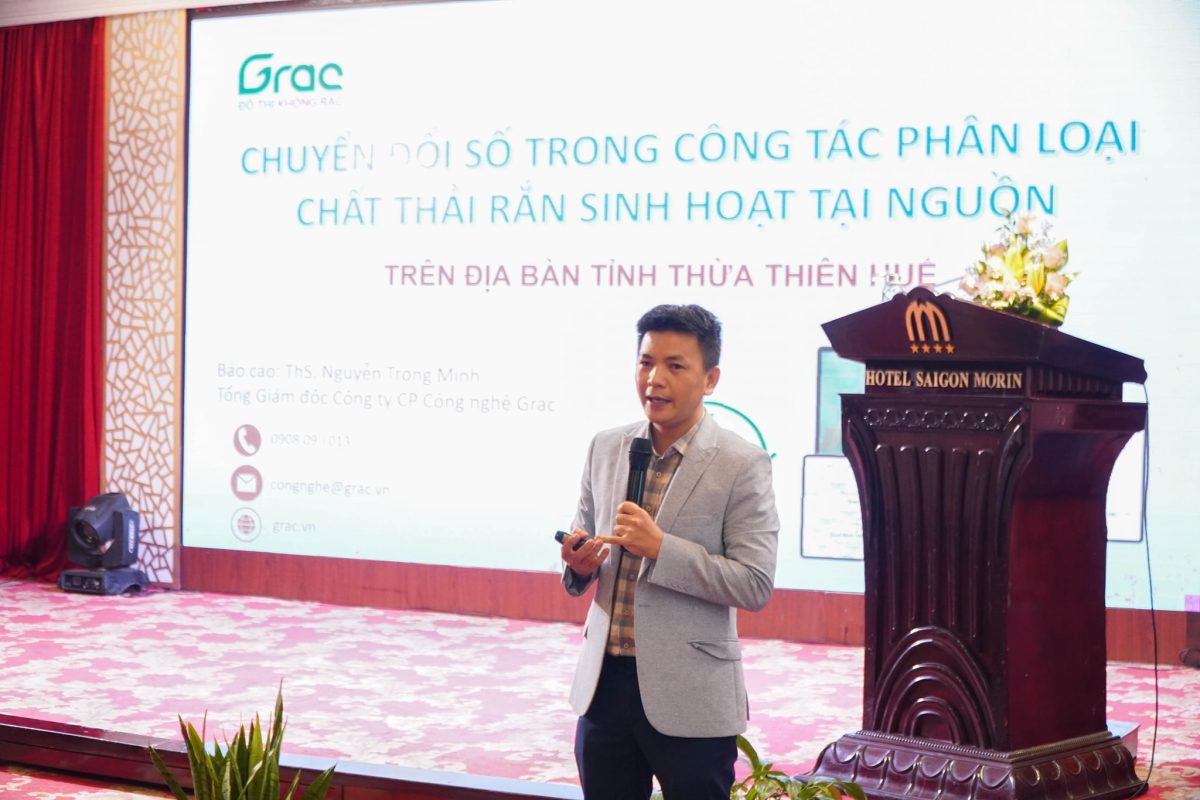Grac and The informal waste sector
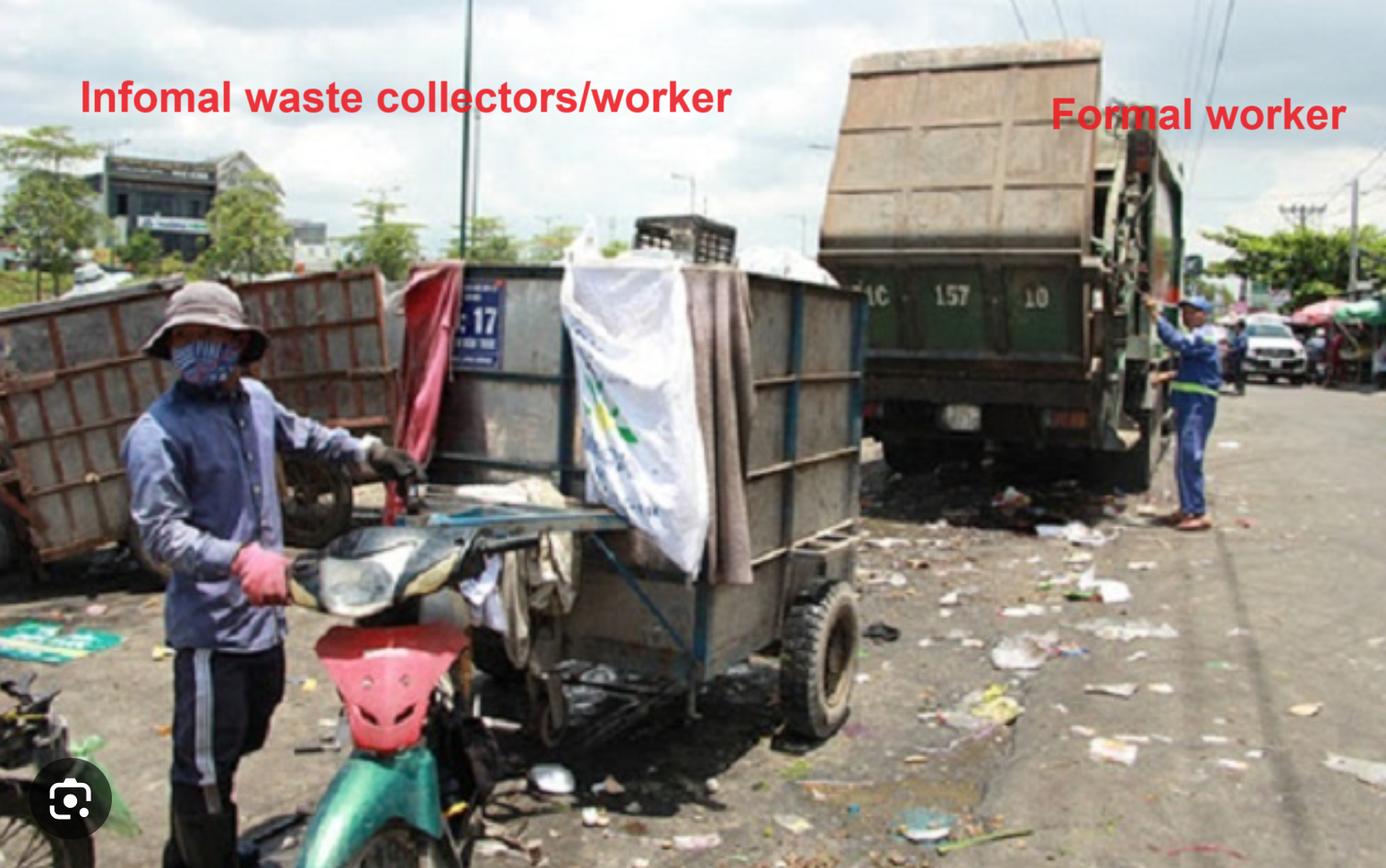
Grac and The informal waste sector in Vietnam
In Vietnam, the recycling of waste materials is a significant issue. Vietnam been dealing with challenges such as the strong involvement of “Junk shop” “waste picker”, and the absence of monitoring data.
The majority of the companies in Vietnam’s solid waste management industry are state-owned, while foreign countries or large, partly multinational companies with Vietnamese subsidiaries provide the technology.
The materials that can be recycled include glass, aluminum, plastic water bottles, metal scrap, different kinds of paper, electronics –computers, cellular phones, keyboards, batteries and other small electronic equipment, textile, wood, wire, cables, plastic product, rubber, etc.
Software could potentially be used to manage and optimize the recycling process, track the flow of recyclable materials, and provide data for analysis and decision-making. This could help improve the efficiency and effectiveness of recycling operations.
GRAC can support junk shops and waste picker in Vietnam in several ways:
- Inventory Management: Software can help keep track of the types and quantities of materials that are being recycled. This can help junk shops manage their resources more effectively and identify trends in the types of waste they are receiving.
- Supply Chain Optimization: Software can help optimize the collection, transportation, and recycling processes. This can reduce costs and increase the efficiency of recycling operations.
- Data Analysis: Software can analyze data to provide insights into the recycling process. This can help identify areas for improvement and measure the impact of recycling efforts.
- Marketplace: Software can also serve as a marketplace for selling recycled products or raw materials. This can help junk shops and waste picker reach a wider market and increase their revenue.
- Education and Awareness: Software can provide educational resources and raise awareness about the importance of recycling. This can help promote recycling practices among the public and increase the supply of recyclable materials.
The informal waste sector: Junk shops, waste pickers and recyclable marterial in vietnam

